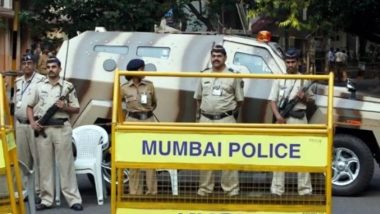The Civic Party, one of the main democratic groups in the Chinese territory, said its members had agreed to wind up their activities. Almost three years ago, Beijing introduced a security law limiting their activities.Hong Kong Civic Party leader Alan Leong on Saturday said its members had passed a resolution to disband one of the territory's most prominent pro-democracy groups.
Speaking to reporters after a special party meeting, Leong said all but one of 31 members in attendance had approved plans to cease activities and appoint a liquidator.
Also Read | Thane Fire: Blaze Erupts in Residential Building Due to Gas Leak in Dombivili, Two Injured.
The decision was made due to a leadership vacuum after its members were squeezed out of local councils and charged under Hong Kong's national security law, introduced by China in 2020.
"The writing was on the wall," Leong was cited by Hong Kong public broadcaster RTHK as saying. "Because there is no one taking over."
"The world is ever-changing. History will tell. Today, the Civic Party is bidding Hong Kong farewell. We hope Hong Kong people will live in the moment with a hopeful and not-too-heavy heart. Live in truth and believe in tomorrow." he wrote in a statement.
Leong said a resolution was passed to donate any remaining funds — an estimated five-figure amount — to charity.
'Barristers' party' made great strides
The Civic Party was founded in 2006 and quickly nicknamed "the barristers' party" because its members were made up of mostly legal sector professionals.
The group wanted to promote democracy and civil society in the semi-autonomous Chinese territory and quickly became an important political force in the financial hub.
Alongside the Democratic Party, the Civic Party performed strongly in local legislative and district polls and was considered a more moderate democratic voice that appealed to the city's large ranks of middle-class voters.
At its peak, the Civic Party was the second-largest group in the city's opposition camp — pocketing six seats in Hong Kong's half-elected legislature in 2012.
National Security law changed fortunes
The decision is another blow to the city's already beleaguered democratic opposition under pressure from China.
In recent years, Hong Kong's opposition has been all but wiped out by a Beijing-imposed national security law and an overhaul of the electoral system that has largely sidelined democrats from local politics.
The law was implemented directly from Beijing after Hong Kong was upended a year earlier by huge, at times violent pro-democracy protests, after local politicians could not get the proposals through the city's legislature. It made it considerably easier to prosecute people on dissent-related charges such as secession, subversion and collusion with foreign powers, and to censor published material deemed to violate such rules.
A half dozen of the Civic Party's key members faced criminal convictions for taking part in the rallies and attempting to raise funds for protesters.
They also took part in unofficial political primaries within the pro-democracy camp — which was deemed a national security risk — and four were charged with "conspiracy to subversion".
Former lawmakers Alvin Yeung and Jeremy Tam have been detained for over two years and denied bail in an ongoing national security case, while another senior member, Margaret Ng, was convicted of unlawful assembly.
Other party members have fled into exile.
Electoral system weakened
A year after introducing the national security law, China revamped Hong Kong's electoral system, further reducing democratic representation while introducing a mechanism to vet politicians' loyalty to Beijing.
The Civic Party lost all five seats in Hong Kong's legislature and more than 30 spots in the democratically elected district councils.
The United States says the measures are part of Beijing's efforts to consolidate its increasingly authoritarian grip over the global financial hub that returned from British to Chinese rule in 1997.
Beijing had guaranteed to retain the city's democracy and freedoms for at least 50 years when it returned to Chinese rule.
mm/msh (AFP, Reuters)
(The above story first appeared on LatestLY on May 27, 2023 06:30 PM IST. For more news and updates on politics, world, sports, entertainment and lifestyle, log on to our website latestly.com).













 Quickly
Quickly




















